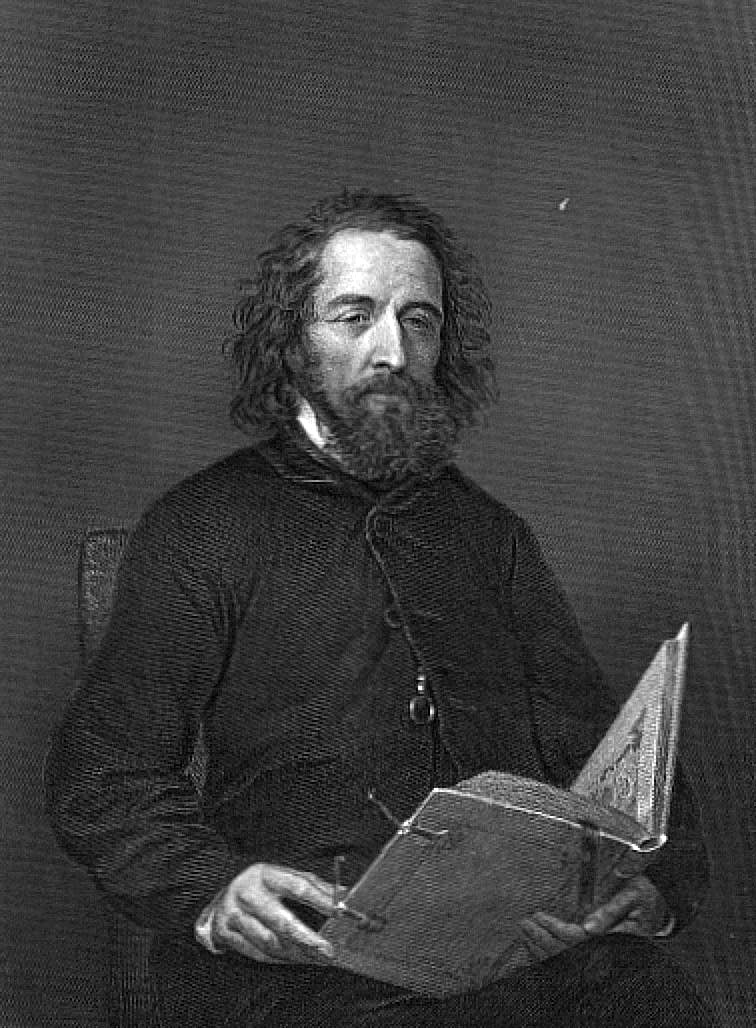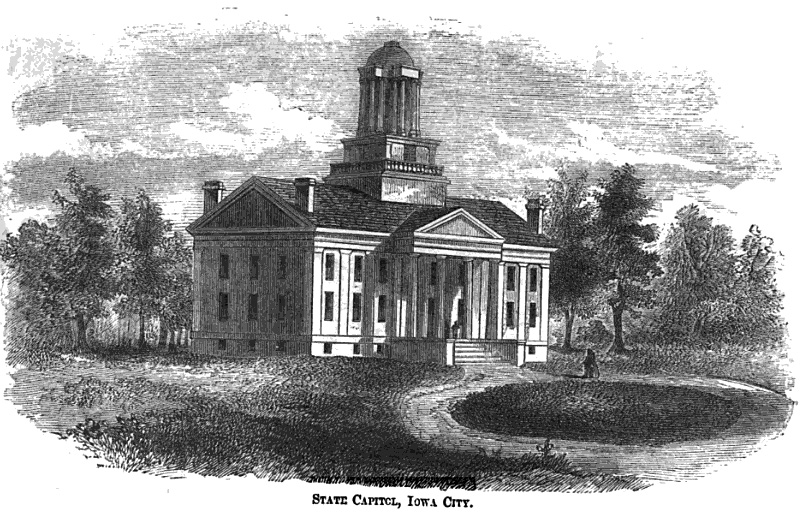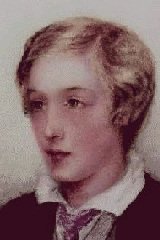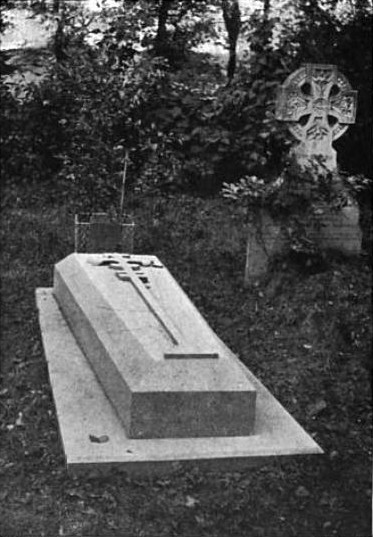|
Robert Bernard Martin
Robert Bernard Martin (1918–1999) was an American scholar and biographer, specializing in Victorian literature. Under the pseudonym Robert Bernard he also published a novel. Life Robert Bernard Martin was born on September 11, 1918, in La Harpe, Illinois, to Carl and Maggie Martin. He graduated from high school in Davenport and received his A.B. summa cum laude from the University of Iowa in 1943. During World War II he served in the U.S. Army Air Forces in Italy and France. He was a professor of English at Princeton University from 1951 to 1975, when he retired to Oxford. Martin published several books about the Victorian era, including biographies of Alfred Tennyson, Gerard Manley Hopkins and Edward Fitzgerald. His life of Tennyson won the James Tait Black Award and the Duff Cooper Prize The Duff Cooper Prize (currently known as the Pol Roger Duff Cooper Prize) is a literary prize awarded annually for the best work of history, biography, political science or occasionally po ... [...More Info...] [...Related Items...] OR: [Wikipedia] [Google] [Baidu] |
Victorian Literature
Victorian era, Victorian literature is English literature during the reign of Queen Victoria (1837–1901). In the Victorian era, the novel became the leading literary genre in English. English writing from this era reflects the major transformations in most aspects of English life, from scientific, economic, and technological advances to changes in class structures and the role of religion in society. The number of new novels published each year increased from 100 at the start of the period to 1000 by the end of it. Famous novelists from this period include Charles Dickens, William Makepeace Thackeray, the three Brontë family, Brontë sisters, Elizabeth Gaskell, George Eliot (Mary Ann Evans), Thomas Hardy, and Rudyard Kipling. The Romanticism, Romantic period was a time of abstract expression and inward focus; during the Victorian era, writers focused on social issues. Writers such as Thomas Carlyle called attention to the dehumanizing effects of the Industrial Revolution and ... [...More Info...] [...Related Items...] OR: [Wikipedia] [Google] [Baidu] |
La Harpe, Illinois
La Harpe is a town in Hancock County, Illinois, Hancock County, Illinois, United States. The population was 1,175 at the 2020 United States census, 2020 census. History During the 18th century, French explorers headed by Bernard de la Harpe were forced to spend the winter just north of the present city of La Harpe. About 1896, four stone tablets dated June 15, 1715, and inscribed in French were reportedly found a few miles east of the old fortification built by the explorers. Stones were translated locally by the only French family in town as follows: "We are surrounded by indians and have no hope for survival unless help soon arrives." Said stone tablets were reported to be sent to the Smithsonian for authentication, and were ruled a hoax. Their whereabouts are currently unknown. Soon after 1830, landowners in the area began to develop a town which they called "Franklin". In 1836, they applied for a post office and were informed another town in Illinois was already named Frank ... [...More Info...] [...Related Items...] OR: [Wikipedia] [Google] [Baidu] |
University Of Iowa
The University of Iowa (U of I, UIowa, or Iowa) is a public university, public research university in Iowa City, Iowa, United States. Founded in 1847, it is the oldest and largest university in the state. The University of Iowa is organized into 12 colleges offering more than 200 areas of study and 7 professional degrees. On an urban 1,880-acre campus on the banks of the Iowa River, the University of Iowa is Carnegie Classification of Institutions of Higher Education, classified among "R1: Doctoral Universities – Very high research activity". In fiscal year 2021, research expenditures at Iowa totaled $818 million. The university was the original developer of the Master of Fine Arts degree, and it operates the Iowa Writers' Workshop, whose alumni include 17 of the university's 46 Pulitzer Prize winners. Iowa is a member of the Association of American Universities and the Universities Research Association. Among public universities in the United States, UI was the first to beco ... [...More Info...] [...Related Items...] OR: [Wikipedia] [Google] [Baidu] |
Princeton University
Princeton University is a private university, private Ivy League research university in Princeton, New Jersey, United States. Founded in 1746 in Elizabeth, New Jersey, Elizabeth as the College of New Jersey, Princeton is the List of Colonial Colleges, fourth-oldest institution of higher education in the United States and one of the nine colonial colleges chartered before the American Revolution. The institution moved to Newark, New Jersey, Newark in 1747 and then to its Mercer County, New Jersey, Mercer County campus in Princeton nine years later. It officially became a university in 1896 and was subsequently renamed Princeton University. The university is governed by the Trustees of Princeton University and has an endowment of $37.7 billion, the largest List of colleges and universities in the United States by endowment, endowment per student in the United States. Princeton provides undergraduate education, undergraduate and graduate education, graduate instruction in the hu ... [...More Info...] [...Related Items...] OR: [Wikipedia] [Google] [Baidu] |
Alfred Tennyson
Alfred Tennyson, 1st Baron Tennyson (; 6 August 1809 – 6 October 1892) was an English poet. He was the Poet Laureate during much of Queen Victoria's reign. In 1829, Tennyson was awarded the Chancellor's Gold Medal at Cambridge for one of his first pieces, "Timbuktu". He published his first solo collection of poems, '' Poems, Chiefly Lyrical'', in 1830. " Claribel" and " Mariana", which remain some of Tennyson's most celebrated poems, were included in this volume. Although described by some critics as overly sentimental, his poems ultimately proved popular and brought Tennyson to the attention of well-known writers of the day, including Samuel Taylor Coleridge. Tennyson's early poetry, with its medievalism and powerful visual imagery, was a major influence on the Pre-Raphaelite Brotherhood. Tennyson also focused on short lyrics, such as " Break, Break, Break", " The Charge of the Light Brigade", " Tears, Idle Tears", and " Crossing the Bar". Much of his verse was based on ... [...More Info...] [...Related Items...] OR: [Wikipedia] [Google] [Baidu] |
Gerard Manley Hopkins
Gerard Manley Hopkins (28 July 1844 – 8 June 1889) was an English poet and Society of Jesus, Jesuit priest, whose posthumous fame places him among the leading English poets. His Prosody (linguistics), prosody – notably his concept of sprung rhythm – established him as an innovator, as did his praise of God through vivid use of Imagery (literature), imagery and nature. Only after his death did Robert Bridges publish a few of Hopkins's mature poems in anthologies, hoping to prepare for wider acceptance of his style. By 1930 Hopkins's work was seen as one of the most original literary advances of his century. It intrigued such leading 20th-century poets as T. S. Eliot, Dylan Thomas, W. H. Auden, Stephen Spender and Cecil Day-Lewis. Early life and family Gerard Manley Hopkins was born in Stratford, London, Stratford, South Essex (UK Parliament constituency), EssexGardner, W. H. (1963), ''Gerard Manley Hopkins: Poems and Prose'' Penguin, p. xvi. (now in Greater London), as the ... [...More Info...] [...Related Items...] OR: [Wikipedia] [Google] [Baidu] |
Edward FitzGerald (poet)
Edward FitzGerald or Fitzgerald (31 March 180914 June 1883) was an English poet and writer. His most famous poem is the first and best-known English translation of '' The Rubaiyat of Omar Khayyam'', which has kept its reputation and popularity since the 1860s. Life Edward FitzGerald was born Edward Purcell at Bredfield House in Bredfield, some two miles north of Woodbridge, Suffolk, England, in 1809. In 1818, his father, John Purcell, assumed the name and arms of his wife's family, the FitzGeralds. His elder brother John used the surname Purcell-Fitzgerald from 1858. The change of family name occurred shortly after FitzGerald's mother inherited a second fortune. She had previously inherited over half a million pounds from an aunt, but in 1818, her father died and left her considerably more than that. The FitzGeralds were one of the wealthiest families in England. Edward FitzGerald later commented that all of his relatives were mad; further, that he was insane as well, but wa ... [...More Info...] [...Related Items...] OR: [Wikipedia] [Google] [Baidu] |
James Tait Black Award
The James Tait Black Memorial Prizes are literary prizes awarded for literature written in the English language. They, along with the Hawthornden Prize, are Britain's oldest literary awards. Based at the University of Edinburgh in Scotland, United Kingdom, the prizes were founded in 1919 by Janet Coats Black in memory of her late husband, James Tait Black, a partner in the publishing house of A & C Black Ltd. Prizes are awarded in three categories: Fiction, Biography and Drama (since 2013). History From its inception, the James Tait Black prize was organised without overt publicity. There was a lack of press and publisher attention, initially at least, because Edinburgh was distant from the literary centres of the country. The decision about the award was made by the Regius Chair of Rhetoric and Belles Lettres at the University of Edinburgh. Four winners of the Nobel Prize in Literature received the James Tait Black earlier in their careers: William Golding, Nadine Gordimer and ... [...More Info...] [...Related Items...] OR: [Wikipedia] [Google] [Baidu] |
Duff Cooper Prize
The Duff Cooper Prize (currently known as the Pol Roger Duff Cooper Prize) is a literary prize awarded annually for the best work of history, biography, political science or occasionally poetry, published in English or French. The prize was established in honour of Duff Cooper, a British diplomat, Cabinet member and author. The prize was first awarded in 1956 to Alan Moorehead for his ''Gallipoli''. At present, the winner receives a first edition copy of Duff Cooper's autobiography '' Old Men Forget'' and a cheque for £5,000. Overview After Duff Cooper's death in 1954, a group of his friends decided to establish a trust to endow a literary prize in his memory. The trust appoints five judges. Two of them are ''ex officio'': the Warden of New College, Oxford, and a member of Duff Cooper's family (initially, Duff Cooper's son, John Julius Norwich for the first thirty-six years, and then John Julius' daughter, Artemis Cooper). The other three judges appointed by the trust serve f ... [...More Info...] [...Related Items...] OR: [Wikipedia] [Google] [Baidu] |
1918 Births
The ceasefire that effectively ended the First World War took place on the eleventh hour of the eleventh day of the eleventh month of this year. Also in this year, the Spanish flu pandemic killed 50–100 million people worldwide. In Russia, this year runs with only 352 days. As the result of Julian to Gregorian calendar switch, 13 days needed to be skipped. Wednesday, January 31 ''(Julian Calendar)'' was immediately followed by Thursday, February 14 ''(Gregorian Calendar)''. Events World War I will be abbreviated as "WWI" January * January – 1918 flu pandemic: The "Spanish flu" ( influenza) is first observed in Haskell County, Kansas. * January 4 – The Finnish Declaration of Independence is recognized by Soviet Russia, Sweden, Germany and France. * January 8 – American president Woodrow Wilson presents the Fourteen Points as a basis for peace negotiations to end the war. * January 9 – Battle of Bear Valley: U.S. troops engage Yaqui Native Ameri ... [...More Info...] [...Related Items...] OR: [Wikipedia] [Google] [Baidu] |
1999 Deaths
This is a list of lists of deaths of notable people, organized by year. New deaths articles are added to their respective month (e.g., Deaths in ) and then linked below. 2025 2024 2023 2022 2021 2020 2019 2018 2017 2016 2015 2014 2013 2012 2011 2010 2009 2008 2007 2006 2005 2004 2003 2002 2001 2000 1999 1998 1997 1996 1995 1994 1993 1992 1991 1990 1989 1988 1987 1986 Earlier years ''Deaths in years earlier than this can usually be found in the main articles of the years.'' See also * Lists of deaths by day * Deaths by year (category) {{DEFAULTSORT:deaths by year ... [...More Info...] [...Related Items...] OR: [Wikipedia] [Google] [Baidu] |
People From Hancock County, Illinois
The term "the people" refers to the public or common mass of people of a polity. As such it is a concept of human rights law, international law as well as constitutional law, particularly used for claims of popular sovereignty. In contrast, a people is any plurality of persons considered as a whole. Used in politics and law, the term "a people" refers to the collective or community of an ethnic group or nation. Concepts Legal Chapter One, Article One of the Charter of the United Nations states that "peoples" have the right to self-determination. Though the mere status as peoples and the right to self-determination, as for example in the case of Indigenous peoples (''peoples'', as in all groups of indigenous people, not merely all indigenous persons as in ''indigenous people''), does not automatically provide for independent sovereignty and therefore secession. Indeed, judge Ivor Jennings identified the inherent problems in the right of "peoples" to self-determination, as ... [...More Info...] [...Related Items...] OR: [Wikipedia] [Google] [Baidu] |







